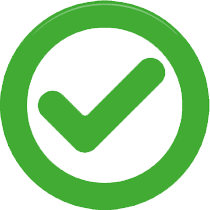
Essential Preparatory Tips for Cheek Reduction Surgery
Buccal fat removal surgery, also known as cheek reduction surgery, is a cosmetic procedure aimed at sculpting the facial contours by reducing the fullness of the cheeks. While the surgery is relatively straightforward ........
Buccal fat removal surgery, also known as cheek reduction surgery, is a cosmetic procedure aimed at sculpting the facial contours by reducing the fullness of the cheeks. While the surgery is relatively straightforward, proper preparation is crucial to ensure a smooth and successful outcome. In this article, we'll discuss in detail the preparatory tips for buccal fat removal surgery to help patients navigate the process with confidence.
Understanding Buccal Fat Removal Surgery
Before diving into the preparatory tips, it's essential to have a basic understanding of buccal fat removal surgery. This procedure involves the strategic removal of buccal fat pads located in the lower cheeks through small incisions inside the mouth. By reducing the volume of buccal fat, the surgery aims to achieve a slimmer and more defined facial contour. Buccal fat removal is typically performed on an outpatient basis under local or general anesthesia and involves minimal downtime.
Preparatory Tips for Buccal Fat Removal Surgery
Proper preparation is key to ensuring a successful buccal fat removal surgery and a smooth recovery process. Here are some tips to help you prepare for your procedure:
Consultation with a Board-Certified Plastic Surgeon
The first step in preparing for buccal fat removal surgery is to schedule a consultation with a board-certified plastic surgeon who specializes in facial procedures. During the consultation, your surgeon will evaluate your facial anatomy, discuss your aesthetic goals, and determine if you are a suitable candidate for the procedure. Be prepared to ask questions about the surgical technique, expected outcomes, and potential risks and complications.
Communicate Your Expectations Clearly
Effective communication with your surgeon is essential to ensure that your expectations align with the potential outcomes of buccal fat removal surgery. Be honest and upfront about your goals and concerns, and don't hesitate to ask questions or seek clarification on any aspect of the procedure. Your surgeon will work with you to develop a personalized treatment plan tailored to your unique needs and preferences.
Understand the Risks and Benefits
Like any surgical procedure, buccal fat removal surgery carries certain risks and potential complications. It's important to have a thorough understanding of these risks and weigh them against the potential benefits of the surgery. Your surgeon will provide you with detailed information about the risks associated with buccal fat removal, which may include infection, bleeding, asymmetry, and changes in facial sensation.
Follow Preoperative Instructions
In the weeks leading up to your surgery, your surgeon will provide you with specific preoperative instructions to follow. These instructions may include:
- Avoiding certain medications and supplements that can increase the risk of bleeding, such as aspirin, ibuprofen, and herbal supplements.
- Quitting smoking, as smoking can impair healing and increase the risk of complications.
- Maintaining a healthy diet and lifestyle to promote optimal healing and recovery.
- Arranging for someone to drive you home after surgery and assist you during the initial stages of recovery.
Complete Preoperative Testing
Depending on your medical history and the recommendations of your surgeon, you may be required to undergo preoperative testing, such as blood tests or a medical clearance from your primary care physician. These tests are designed to ensure that you are in good overall health and can safely undergo surgery.
Arrange for Recovery Accommodations
After buccal fat removal surgery, you will need some time to rest and recover. It's essential to arrange for accommodations that will facilitate a comfortable and stress-free recovery process. This may include:
- Taking time off work or school to allow for adequate rest and recovery.
- Setting up a comfortable recovery area at home with plenty of pillows, blankets, and entertainment options.
- Enlisting the help of friends or family members to assist with household chores, meal preparation, and transportation during the initial stages of recovery.
Stock Up on Recovery Essentials
In the days leading up to your surgery, it's a good idea to stock up on essential items that will help you during the recovery process. This may include:
- Soft foods that are easy to eat, such as soups, yogurt, and smoothies.
- Over-the-counter pain medication recommended by your surgeon to manage postoperative discomfort.
- Ice packs or cold compresses to reduce swelling and bruising.
- Gentle facial cleansers and moisturizers to keep your skin clean and hydrated.
Plan for Follow-Up Appointments
Following buccal fat removal surgery, you will need to attend follow-up appointments with your surgeon to monitor your progress and ensure that you are healing properly. Be sure to schedule these appointments in advance and make any necessary arrangements to attend them.
Mental Preparation
While preparing physically is crucial, it's also essential to prepare mentally for buccal fat removal surgery. Understandably, undergoing any surgical procedure can cause anxiety or nervousness. Take some time to reflect on your reasons for wanting the surgery and visualize the outcome you hope to achieve. Consider practicing relaxation techniques such as deep breathing or meditation to help calm your nerves leading up to the surgery.
Arrange for Postoperative Care
In addition to arranging for assistance during the initial stages of recovery, consider making arrangements for postoperative care as well. This may involve scheduling follow-up appointments with your surgeon, arranging for transportation to and from these appointments, and ensuring that you have access to any necessary medications or supplies during the recovery period.
Manage Expectations
While buccal fat removal surgery can yield significant improvements in facial contouring, it's essential to manage your expectations realistically. Remember that the results of the surgery may take time to fully manifest as swelling subsides and the tissues settle into their new contours. Be patient with the healing process and trust in your surgeon's expertise to help you achieve the best possible outcome.
Lifestyle Changes
Consider making any necessary lifestyle changes leading up to the surgery to promote optimal healing and recovery. This may include adopting a healthy diet rich in fruits, vegetables, and lean proteins to support the body's healing processes, as well as staying hydrated and getting plenty of rest in the days leading up to the surgery.
Emotional Support
Don't underestimate the emotional aspect of undergoing cosmetic surgery. Surround yourself with supportive friends and family members who can offer encouragement and assistance throughout the process. Having a strong support system in place can make a significant difference in your overall experience and recovery.
Conclusion
Preparing for buccal fat removal surgery involves thorough planning and preparation to ensure a successful outcome and smooth recovery process. By following the preparatory tips outlined in this article and working closely with your surgeon, you can approach your surgery with confidence and achieve the aesthetic results you desire. Remember to communicate openly with your surgeon, follow preoperative instructions diligently, and take the necessary steps to facilitate a comfortable and stress-free recovery. With proper preparation and care, buccal fat removal surgery can help you achieve a slimmer and more defined facial contour, enhancing your overall appearance and confidence.
"Our website makes it straightforward to consult with renowned surgeons in India, offering professional and tailored advice via email or WhatsApp."


Comments
Login & Write comment